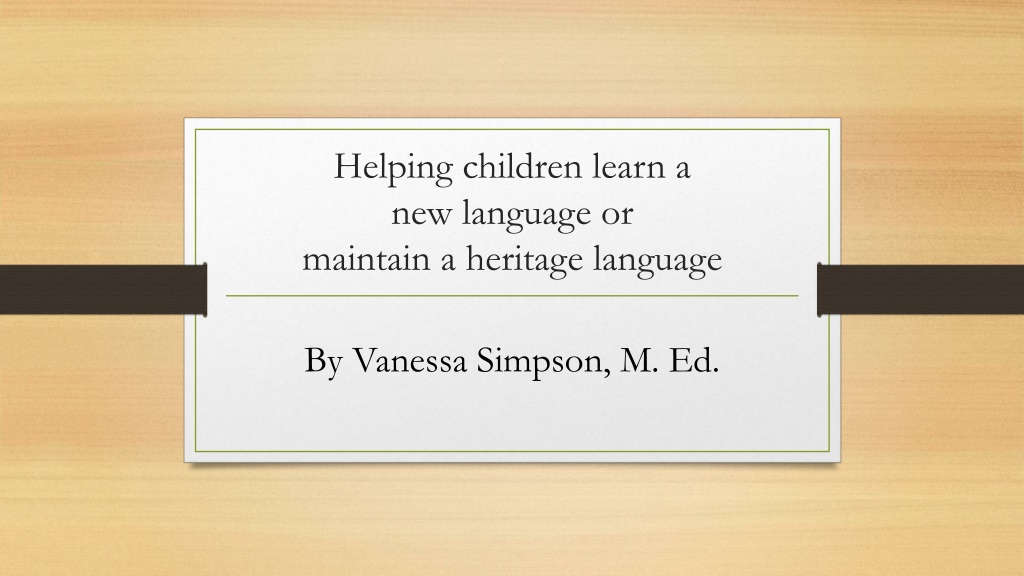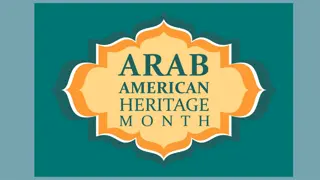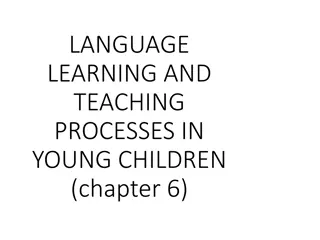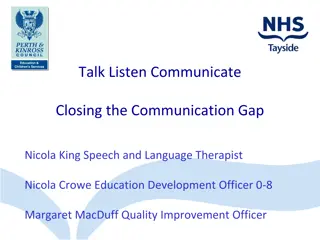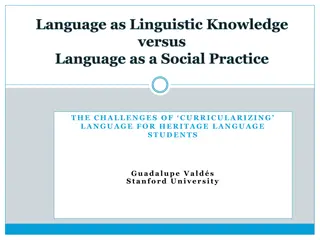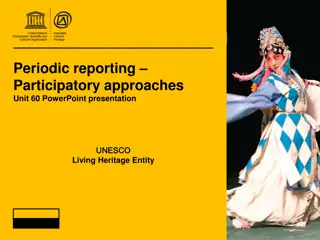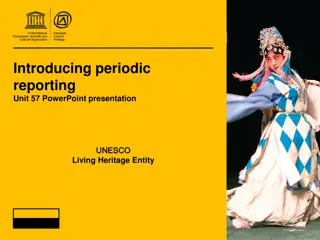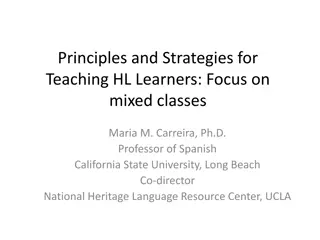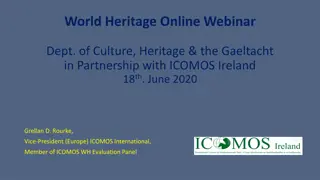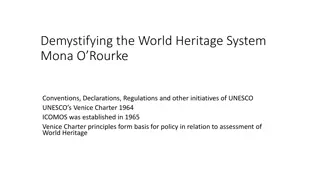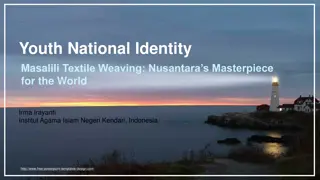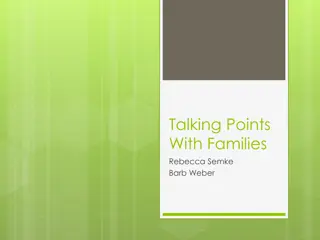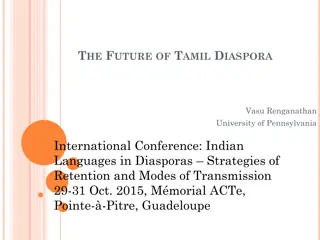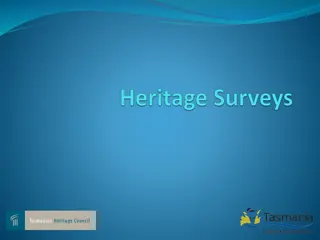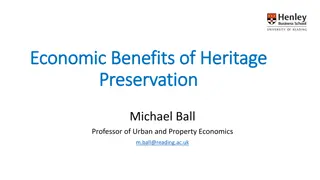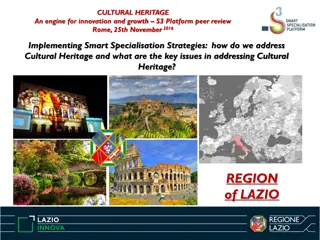Importance of Children Maintaining Heritage Language
Vanessa Simpson, a passionate language educator, emphasizes the cognitive, social, and cultural benefits of children learning and maintaining multiple languages. Bilingualism enhances job opportunities, open-mindedness, travel experiences, and brain health. Preserving heritage language is crucial for psychological well-being, literacy development, family connections, and cultural roots. Addressing challenges like additive vs. subtractive bilingualism requires proactive parental involvement. Despite obstacles, parents and teachers can take steps to support children in maintaining and learning languages effectively.
Uploaded on Nov 13, 2024 | 0 Views
Download Presentation

Please find below an Image/Link to download the presentation.
The content on the website is provided AS IS for your information and personal use only. It may not be sold, licensed, or shared on other websites without obtaining consent from the author. Download presentation by click this link. If you encounter any issues during the download, it is possible that the publisher has removed the file from their server.
E N D
Presentation Transcript
Helping children learn a new language or maintain a heritage language By Vanessa Simpson, M. Ed.
More than half of the world speak more than one language everyday Your child can too!
About Me Vanessa Simpson has had a passion for foreign languages from an early age. While in high school, she began tutoring students in English and, while going to Law School, she started a small language school in her Mexico City home teaching children and adults. After finishing her law degree and moving to Houston, her passion for teaching led her to launch Language Kids World and complete a master s degree in Bilingual Education at Houston Baptist University. She is currently completing a master s degree is Second Language Learning & Educational Technology at the University of Arizona.
Why it is important for children to learn another language Being bilingual or multilingual has many cognitive and educational benefits. Better job opportunities and possibility for higher salaries. Being multilingual makes you more open minded. Better travel experiences. New social and cultural opportunities. Speaking more than one language helps you learn multiple languages. Health benefits include better aging of the brain
Why it is important for children to maintain their heritage language All of the above plus Maintaining the heritage language is essential to children s psychological, cognitive, linguistic, social and academic success. Developing literacy in the first language helps children develop literacy in the second language. Opportunity to connect with family members that speak the heritage language. Deeper roots with the child s own heritage and culture.
The problem Additive vs subtractive bilingualism. The heritage language in most families is completely lost within three generations. Language loss frequently happens when children enter school. Some teachers believe that the heritage language is a problem to be overcome as opposed to a resource to be utilized. Parents must be proactive. It can be challenging to help your child develop fluency and literacy in the heritage or second language.
There is hope Although it can be challenging, there are many things parents and teachers can do to promote heritage language maintenance and second language learning.
How children can learn and maintain a language Natural approach Children learn a second language the same way they learned their first language. Children maintain a heritage language by listening to it constantly at home and by having meaningful interactions with family members in the heritage language.
How children can learn and maintain a language Comprehensible Input Comprehensible input is language input that can be understood by listeners despite them not understanding all the words and structures in it. Input must be constant, meaningful and comprehensible. Use of context and visual cues. Restate, do not correct. Do not force production, focus on input.
Heritage Language Maintenance TIPS FOR PARENTS Use the heritage language as often as possible, preferably all the time. What to do when only one parent speaks the heritage language. Tell stories to your children about your childhood, use culture as a way to connect your child to the heritage language. Have age-appropriate books, music and videos in the heritage language available at home. Read with your child in the heritage language. Have your child socialize in the heritage language (play groups). Watch movies and shows in the target language.
Second Language Learning TIPS FOR PARENTS Enroll your child in a second language class. Help your child make time to practice at home. Have your child teach you what s/he learned in class. Find opportunities for your child to practice the second language. Have your child socialize in the second language (play groups). Watch movies and shows in the second language. Have age and level-appropriate books, music and videos in the second language available at home. Find cultural events related to the second language and culture. Volunteer to organize a career day that features jobs that use skills in more than one language.
Remember Input must be constant, meaningful and comprehensible. Use of context and visual cues. Restate, do not correct. Do not force production, focus on input.
Contact Please feel free to contact me with any questions. Vanessa Simpson, M. Ed. Language Kids World Vanessa@languagekids.com 281-565-1388 www.LanguageKids.com
